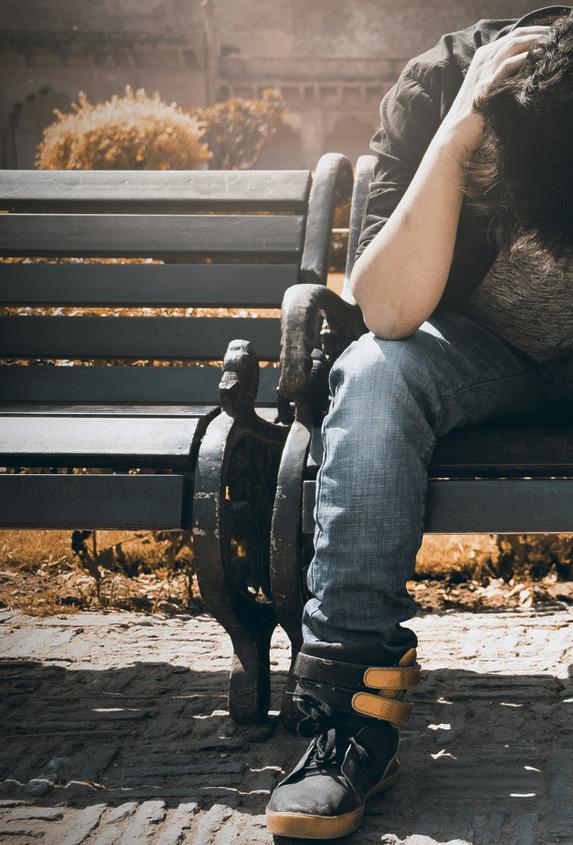
18 minute read
Breaking the Silence
“I’m a lesbian girl. I live with my family. The truth is that things are going well around here, although I have to admit that having to study a lot is very overwhelming and sometimes I don’t do it (I haven’t done it in 3 weeks).
There are days when I fight with my family, especially my father, about my way of thinking and, of course, about my sexuality. He does make some very misogynistic and homophobic comments. I’m out of the closet, so yes, he does make those comments intentionally, but I don’t let him ruin my days.
Advertisement
I hope you all feel good and are staying at home. Your friend sends you good vibes.”
Anonymous, Mexico City, Mexico
“Hi, I’m Sebastián, I’m 32 years old, I’m gay and I live in Buenos Aires, Argentina.
The quarantine caught me without a job. In January, I stopped working where I was working before, what seemed like an opportunity because I was going to move to Europe. It became a problem when all the borders were closed.
I am living on my unemployment insurance and my savings, but at the same time I am super grateful and aware that I am a privileged person who has a roof over their head and can cover all their basic needs to live.
I miss my family a lot. Even though they are in the same city where I live I haven’t seen them since the beginning of March. I miss my friends. I miss real contact.” “Because of the pandemic, I’ve been separated from my girlfriend for two months. We contact each other regularly, but I miss having her next to me.
Yet I don’t despair. I know I will see her when the lockdown is lifted. Plus, she’s planning to come out to her parents after the lockdown. It’s a moment that scares her, but it’s a moment she really needs. And I’m proud of her because she’s taking the courage to be herself with her family.
I also plan to invite her to see my parents after the lockdown. My parents know I’m a lesbian and they accept me the way I am. No one can imagine how reassuring it is for a child to have their parents by their side when they realize they are gay. I’m happy, I’m free to be myself, and I know that one day my girlfriend will be too.
I want to send a message of hope and positivity to the young LGBT people who read my message, and who, perhaps, have just discovered themselves. Know that being yourself is the most beautiful thing that life can offer you. It is hard to love in this world for people like us. But, I assure you, it’s worth it! And even if you’re scared, even if you’re lonely, I promise you, someday you’ll be happy.”
Justine, France
“The greatest anxiety is not having to stay at home, but staying in a house that I don’t love, in a town that I don’t love, and the ambulance sirens blaring right outside my house. The greatest burden is having to share this house with my parents, not so much for my mother, but certainly it is very hard having to put up with my father. A father who has no respect for me and shows it as soon as he gets the chance.”
The theme of this year’s International Day Against Homophobia, Transphobia and Biphobia (IDAHOBIT) which was on May 17 was ... Breaking The Silence.
To commemorate this day, All Out asked their members around the world to share how the global health crisis has affected them and their loved ones. Their “voices from the silence” provide insight into LGBT+ lives under lockdown: stories of hope, fear, loss and courage.
“My name is Alejandro Daniel, I’m a 15-year-old trans boy. Since this COVID-19 thing started, and we were quarantined, I have had to learn to deal with and endure insults, beatings and criticism from my parents. They don’t accept the fact that I’m trans.
Every day and night it’s the same: crying, anxiety attacks, asking for this martyrdom to end. Several times I have tried to kill myself, to end all this pain and suffering, but then I start thinking that I must be strong, I want to fulfil my dreams and be happy at last.
Honestly, it’s a hard thing to go through, but it does teach me a lesson after all: I am strong and I can fight, I can resist and keep going in spite of everything, it is only a “test” that I will manage to pass and then this will be no more than a bad memory.” “Hi people, my name is Isaac Mugisha from Uganda. I just wanted to shed a bit of light on what’s been happening in my life for the last 35 days.
I’ve had to use a bicycle to move around to protect people and protect myself. But still I’ve had to work the most I’ve ever worked in my activism days. I’ve had to support people who are in need.
I’ve had to provide shelter to people who are in need. I’ve had to rescue people who are in need. I’ve had to provide relief to people who are in need. And this is a message I’d like to pass on to you as well. Please support someone today. Please look out for each other. We are in this together and the whole world is under attack at the moment. But we’ll get over it. And I’d like to encourage you to look out for each other.
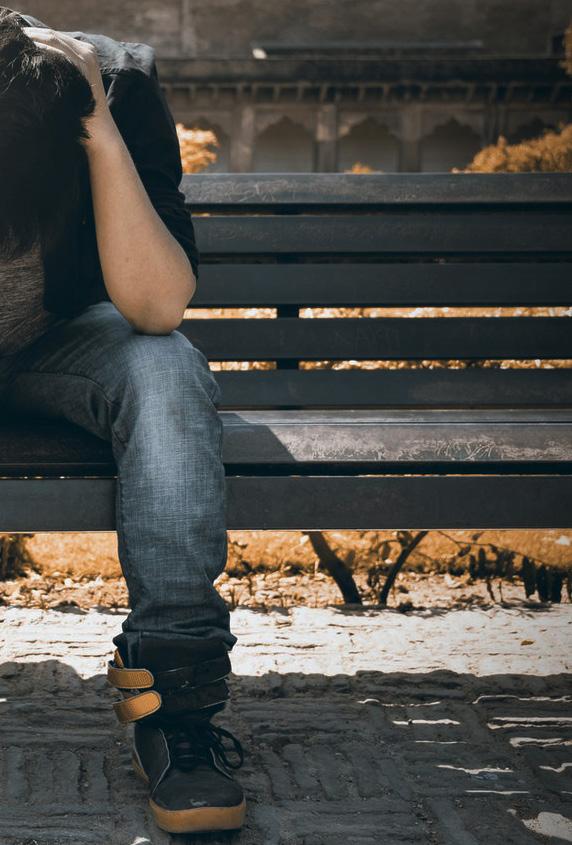
Stay safe and stay well.
Isaac Mugisha, Uganda
“How has my life changed in social isolation? Not a lot really. I’ve been socially isolated for at least ten years, and I learned to adapt and that’s OK. I’m 56. I was very social up to my early forties - travel, partying, boyfriends and friends... But then health problems left me house bound for a while and my career ended.
I started a small business from home, got a dog, and my social life is hanging out with friends at the dog park. I’ve spoken with gay friends more in the last few weeks than I have for years. That’s nice. It’s mostly because their lives have been turned upside down by lockdown, and they have more time to chat. But one final thought... The last ten years made me realise, the LGBT ‘community’ doesn’t exist for me. Once I didn’t have the looks, the money to go out, or the desire to hook up - there was no community. I see gay friends maybe every few months.”
David, England, UK
A few of our community members who had migrated for work are now being forced to return to their families to avoid being stranded because of the pandemic situation. Many of them haven’t revealed their trans identities to their families and will be forced to go through the tough and painful experience of presenting their gender differently than they’ve always done. We face this, in addition to the forced isolation at home and mockery and discrimination in their neighbourhoods.
We hear that the lockdown may be further extended - it’s unpredictable. If this keeps going on we don’t know how we’ll survive, the community has a lot of people who are old, many even with health issues like diabetes and HIV. Not all transgender communities are even being reached out to with help during this crisis - many are simply just not getting enough support. We first got ration support from Solidarity Foundation and later on even from our District officials - 60 community members were given ration kits. We request continued support in the days to come, we don’t know who else to reach out to for help because everyone is facing the same situation.”
Deepu, transgender community leader, Chamarajanagar district, Karnataka, India
“I’m transgender and my wife is a lesbian. We live in an improvised way, on the terrace of my mom’s house. I study administration, and work in financial education. My wife prepares to take university entrance exams and works as a tattoo and piercing artist.
Because of my financial knowledge, we have (thank God) a financial reserve for emergencies, both in our personal lives and in her business. So I’ve put together a contingency plan to make sure the business still makes some profit while I work remotely, giving online classes and keeping my income.
So, financially we’re ok, but emotionally we’re shaken. Our relations with our families have long been troubled by dysfunctionality, prejudice and distress.
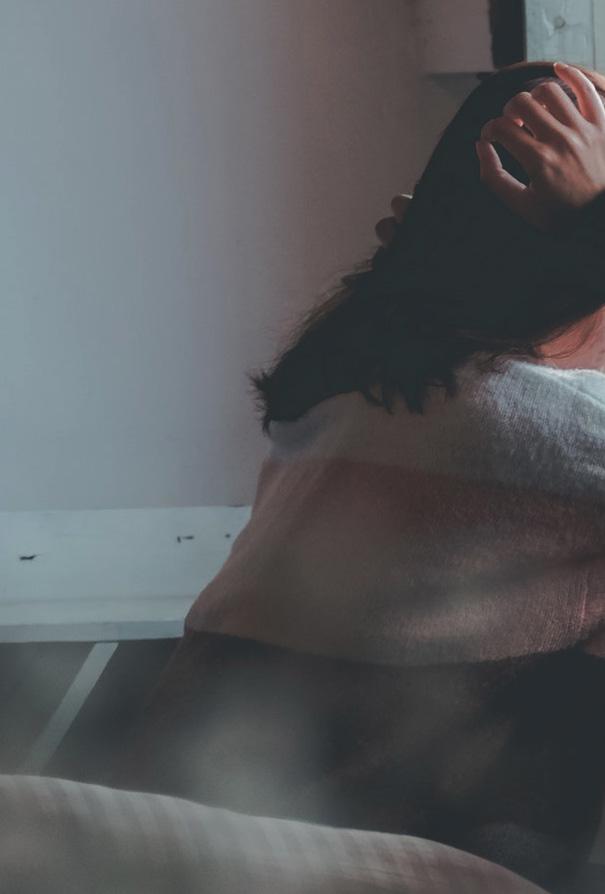
And on top of all that, my hormones are running out – drugstores have been out of it for more than 2 years. And I’ll have to risk my life leaving the house to buy it secretly, praying that it’s available and thanking God I have the money for it.
We have a lot of problems that hetero normative couples don’t even dream about, but we consider ourselves blessed and privileged compared to so many others in the LGBTQ+ community. Even with everything that’s going on, I consider it great to have found a partner that’s so dedicated and present, to have a solid, supporting relationship with so much friendship.
We’re already survivors. We know what it’s like to fight to exist. Even if it’s not comfortable and it leaves a lot of scars, we’re not living through a situation that’s completely unknown to us. I’ve developed resistance to exhaustion and constant exertion. I can only hope we make it out of this alive.
Danillo, Rio de Janeiro, Brazil “My story is one about starting a relationship during social isolation. Last November I met a person who has been teaching me the best I can give in a relationship by forgetting the mistakes and my past insecurities. I didn’t think I could ever meet someone like that.
The trips to the cinema, the conversations in restaurants, and, little by little, the exciting intimacy of the beginning of a relationship were abruptly cut off on March 13 when we started social isolation that was initially voluntary and became mandatory after a few days.
At first the initial optimism that this would go on only for a couple of weeks led to several moments of frustration as the days passed and the situation did not change. The days have been going by between “good and bad” where we have continued creating our own ways to stay together and in touch, handling the frustration and the feeling of missing each other as best we can.
If the quarantine continues in our city, the amount of time we spent together in “real” life will equal the time we’ve spent together in the “virtual world” at a distance. However, in some ways I think this is a real challenge that will allow us to continue building a relationship. The crisis allows us to have the time to focus on ourselves in order to build a stronger relationship later – I guess we’ll see!
R2ro, Quito, Ecuador
“I can’t hide the fact that my mental health is deteriorating every day, every hour more. For me, being locked in the house against my will is proving to be more difficult than I imagined: in every moment of silence and deadlock, my mind is constantly whispering all I should do and should be. All my doubts and fears reappear and freeze me. If there was no Internet or at least the telephone, I would never have a break from my head and the negative thoughts I keep hammering myself with.
Just before the quarantine, I had found a temporary release valve that made me happy: performing at LGBTQ+ nights. I felt at home in those moments, I felt like some of my quirks were being accepted, but this virus took that away too.”
One day he wasn’t feeling well and called his doctor who told him he needed to get tested for COVID-19. William went to the local Urgent Care got tested and waited, after 4 days they still didn’t have the results, after 8 days still no results.
Tuesday, April 7th started like any other day but a little after 1 pm William had a heart attack and died. It took the medical examiner a day and a half to get the results and it turned out William had the virus. COVID-19, his diabetes, high blood pressure, and stress turned out to be a deadly combination.
Now I’m alone and self-isolating, between family on both sides and friends I don’t know how I would get through this.”
David, New York City, USA
“I’m Chris, a trans boy that hasn’t come out to his family yet. Going to school was my ticket to freedom, the real me could come out. I was able to smile and stop pretending, outside the safety of my mind I was still being physically attacked [but] I was me, so it didn’t matter.
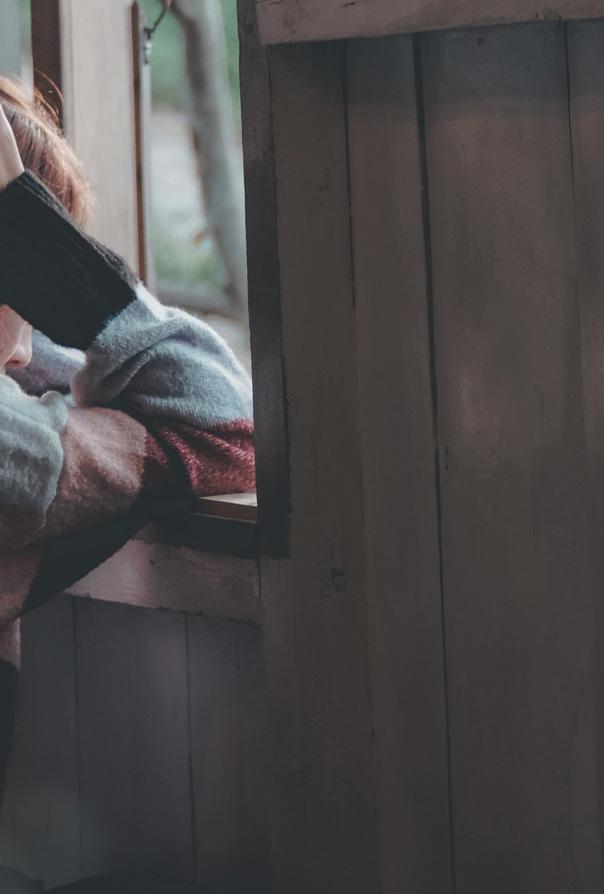
After they announced the quarantine, my life turned back to keeping up appearances, having to listen about how I should look, behave, and be, falling back into the loneliness that I was in before I went to school. A person helped me to free myself, when I found her I found myself, and now I am far away from them.
I just want the quarantine to end and to feel that freedom again. Also, for school, every week they gave me a small amount of money for lunch. I was saving it for a chest binder since bandages are not healthy. I don’t think they’ll give me that money now. I believe I’ll have to wait for the binder longer than expected.”
Chris, Mexico City, Mexico
“My name is Alejandro Daniel, I’m a 15-year-old trans boy. Since this COVID-19 thing started, and we were quarantined, I have had to learn to deal with and endure insults, beatings and criticism from my parents. They don’t accept the fact that I’m trans.
Every day and night it’s the same: crying, anxiety attacks, asking for this martyrdom to end. Several times I have tried to kill myself, to end all this pain and suffering, but then I start thinking that I must be strong, I want to fulfil my dreams and be happy at last.
Honestly, it’s a hard thing to go through, but it does teach me a lesson after all: I am strong and I can fight, I can resist and keep going in spite of everything, it is only a “test” that I will manage to pass and then this will be no more than a bad memory.” “My name is Melusi Simelane and I’m the Executive Director of Eswatini Sexual & Gender Minorities. While we’re fighting the global COVID-19 pandemic, we’re fighting a battle of having something to eat. While we’re under very strict measures to stop the spread of the virus, we are fighting for survival.
Poverty is something that has hit the LGBT+ community for so long because we’re stigmatized and discriminated against. We’re not offered the same privileges and opportunities for employment. And therefore the very minimum we can do is get a job e.g. in retail. These are the economies that had to suffer most in this global pandemic. And we welcome the measures by our government to curb the spread of the virus. However, we’re suffering the most. The economy is not going to survive, that’s what economists are saying. And we as the LGBT+ community are not going to survive, because we don’t have food to eat. At the moment we’re trying to raise funds, so we can have food parcels delivered to the LGBT+ community. We’re trying to do the best we can to make sure that there’s support for those who have increased levels of anxiety. And to those who are facing harassment and emotional violence in their homes. There’s increased domestic violence experienced by those who have to stay in their homes because there’s nowhere they can go. This global pandemic has taught us a lesson: We need to reignite and reinvent our approach to LGBT+ advocacy. We were speaking the other day about human rights where everyone was complaining that they had to give up some freedoms and human rights. But we as the LGBT+ community had to give up more than that.
For so long we have not enjoyed human rights, but now – we’ve had to give up survival. This COVID-19 pandemic has hit us so much. And we rely so much on any help we can get from the global community. But first and foremost we must centre on equality for all. We are all suffering and trying to do what we can so the spread of the virus doesn’t go too high.
But we must also remember that there are those of us who are most at risk, who are highly marginalised.
Melusi Simelane, Mbabane, eSwatini
TYRON ZOUTMAN
FOR THE LOVE OF DANCE
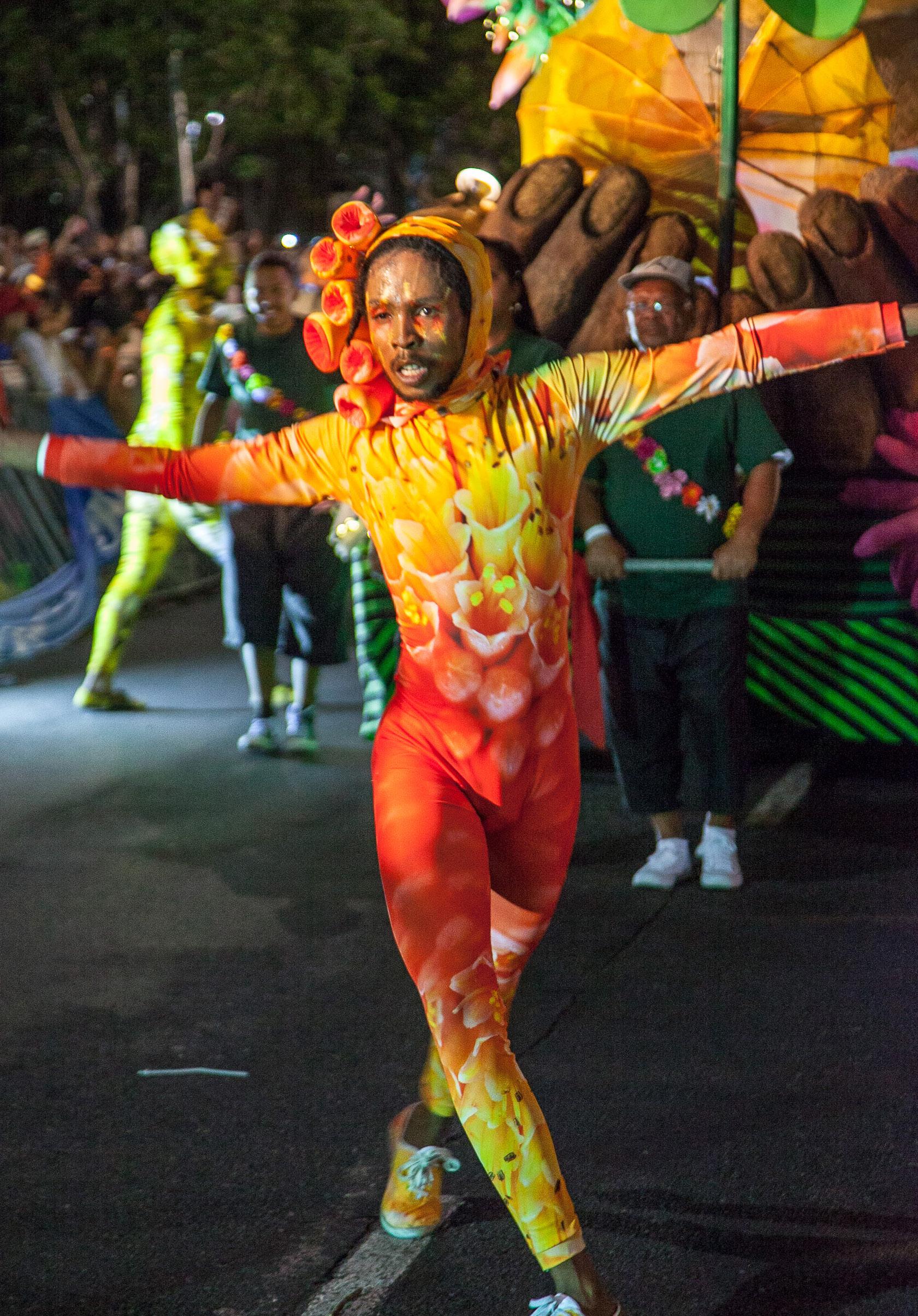
Swartland youngster’s striking dance talent – and sheer grit and determination – leads to highly successful career in the arts
As young as he is, Tyron Zoutman has already won a string of local and international awards for dance, choreography, scriptwriting and direction. And the 27-year-old dancer, singer and choreographer, who grew up in impoverished circumstances in the tiny Swartland town of Piketberg, will once again play a leading role in this year’s Cape Town Carnival, taking place on 21 March in Green Point, Cape Town.
Performing alongside several other highly talented dancers in the “Honouring our African Cultural Roots” pod of this year’s festival, Zoutman will help to bring to life the Carnival’s theme, “Incredible Journey: Sounds of South Africa”. The routine will combine traditional and contemporary African dance, and draw inspiration in movement, dress and adornment from isiZulu, isiXhosa, seSotho and Ndebele cultures.
Zoutman, who is skilled in local hiphop, kwaito, gumboot, African jazz and African fusion dance – among several other genres – attributes his success to his mother, his church and “some incredible teachers and mentors”. “They shaped who and what I am today,” he says. “I came from a family that was very spiritual and artistic, and my childhood was sort of like a ‘God journey’ with teachers like Miss Hefca and the late Roderick Beukes seeing in me talent then pushing me in the right direction.”
Being bold,
The only child to his mother, and one of four to his father, and later a breadwinner for the family, Zoutman used dance from the tender age of 5 to prove his worth, but also to help him forget for a while the relentless challenges that came with growing up in a poor community. “Whenever stress got to me, I would dance my heart out,” he recalls. “It was like therapy. Pretty much at every opportunity, I was dancing.”
brave and passionate...
Zoutman, who studied Performing Arts at Northlink College in Cape Town (where he is now a drama lecturer) began his journey in the arts after being plucked from a school choir. His first acting/musical role was as Rapelsteeltjie, followed by dancing roles in various Piketberg Eisteddfods for the Western Cape Movement Education Association (WCMEA). He undertook a singing tour to Germany in 2008, and received several golden accolades during his school years both in a solo and group performance capacities. He graduated from Northlink in 2013, winning Pearson’s BTech International Student of the Year title, and being invited to London to receive the award from one of the world’s largest education institutions.
As an adult, Zoutman has appeared in leading – and award-winning – roles in Artscape shows like The Boyfriend and Joseph and the Amazing Technicolour Dreamcoat, and as a lead or part of the ensemble in many other major musicals and theatre productions including Evita (2013), Perfectly You (2013), Our Winds That Heal (2015/16), Ugubani Wena (2016/17/18), Uhambo, The Fire Within Us! (2017/18), Shadows in Red Light (2017), Annie Get Your Gun (2018) and Worstel In Die Geheim (2018). He was a master class presenter at Suidoosterfees from 2016 to 2019. me fall in love with the spirit of ubuntu/togetherness and allowed me not only to perform what I did best, but also to mentor others and share in their development,” he says.
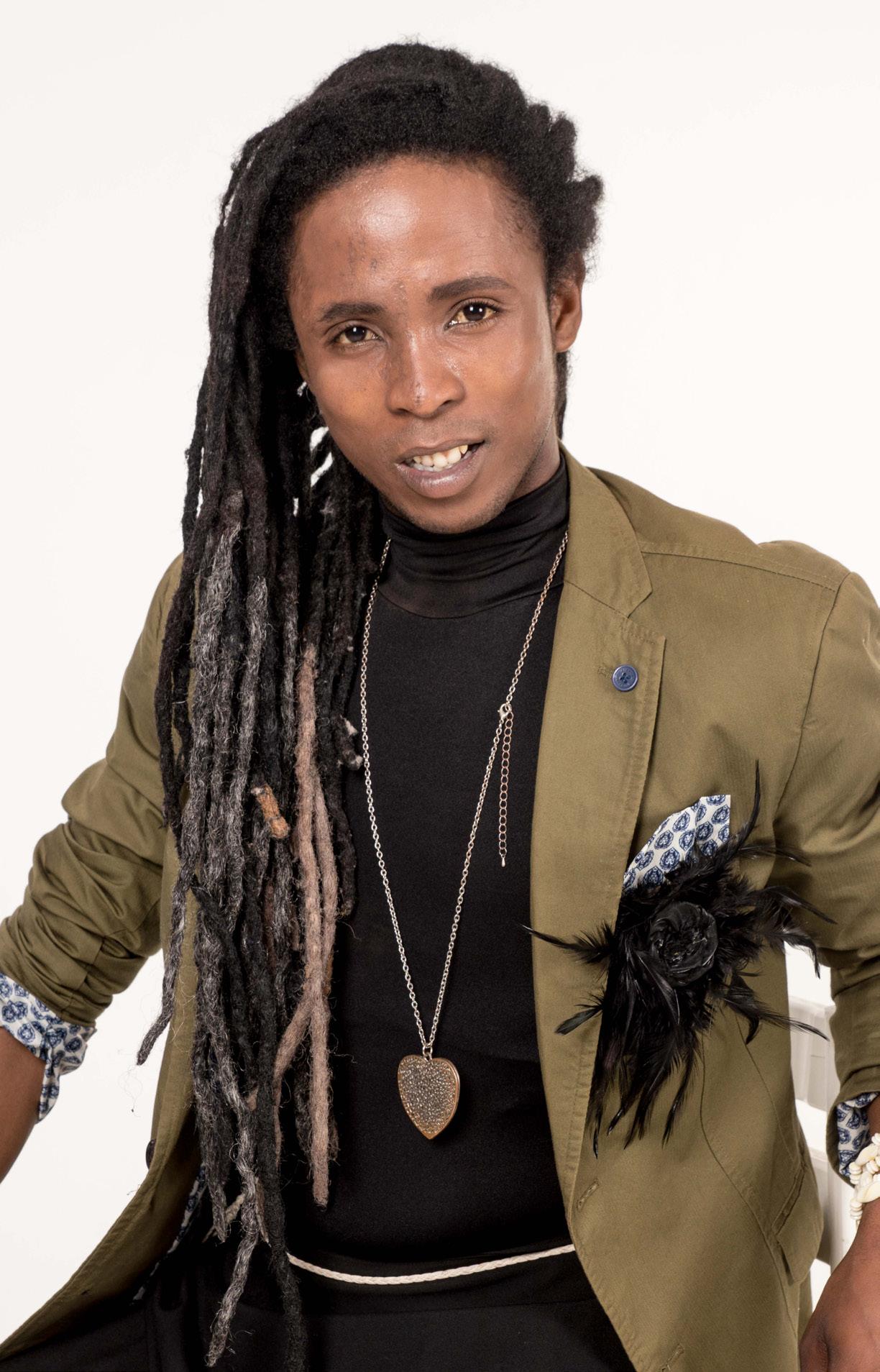
Introduced to the annual spectacular by a friend, Zoutman signed on as a lead performer, soon involving his peers and students from Northlink College in the event, and mentoring at the regular Carnival dance workshops. “I always had a gift for teaching others, because I had to use this to look after my own family, so naturally I’m drawn to working with people and developing young artists. Cape Town Carnival has allowed me to do just that and more.”
Zoutman, who has established two companies, Zoutman Dance Company and Lekker Jy? Produksies, believes that “being bold, brave and passionate” has enabled him to achieve so much in such a short space of time. “I would love to build my businesses, to be able to employ more people and provide for their families, and to be involved with youth, with homeless people and with schools,” he says.
Zoutman and over 2 000 other costumed performers, giantsized floats and incredible live performance groups took part in this year’s Cape Town Carnival,
There is no comparison to a new viral outbreak that might kill people society actually values, like your grandmother and her friends in the nursing home.
STOP COMPARING THE RESPONSE TO CORONAVIRUS TO THE EARLY RESPONSE TO AIDS. IT’S INSULTING.
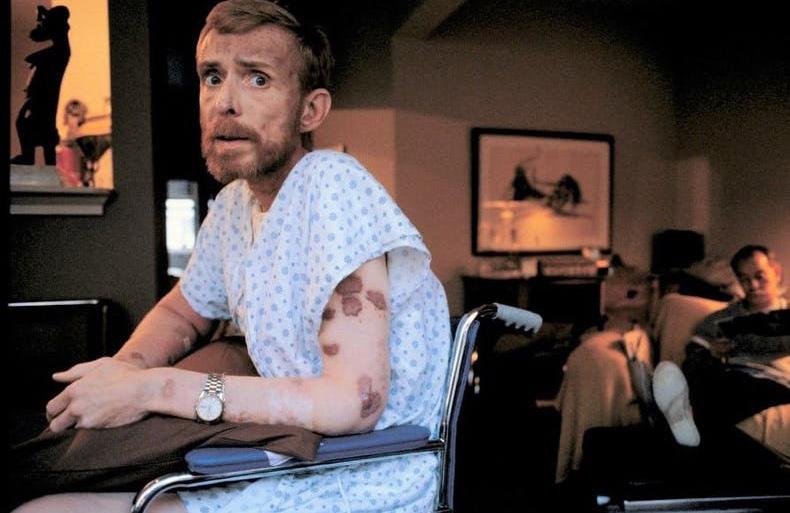
People ask me if our lives today feel like the early years of HIV/AIDS, and I want to scream. There is no comparison. Just stop. No one cared about people dying of AIDS in the early years of the pandemic. The stock market didn’t budge. The president didn’t hold news conferences. Billions of dollars were not spent. By Mark S. King society actually values, like your grandmother and her friends in the nursing home.
To have any conversation during the early HIV pandemic meant talking about anal sex and sharing needles and condoms and religion and who God was punishing. We had to climb over mountains of social bias in order to educate people on the basic facts of risk and transmission.









